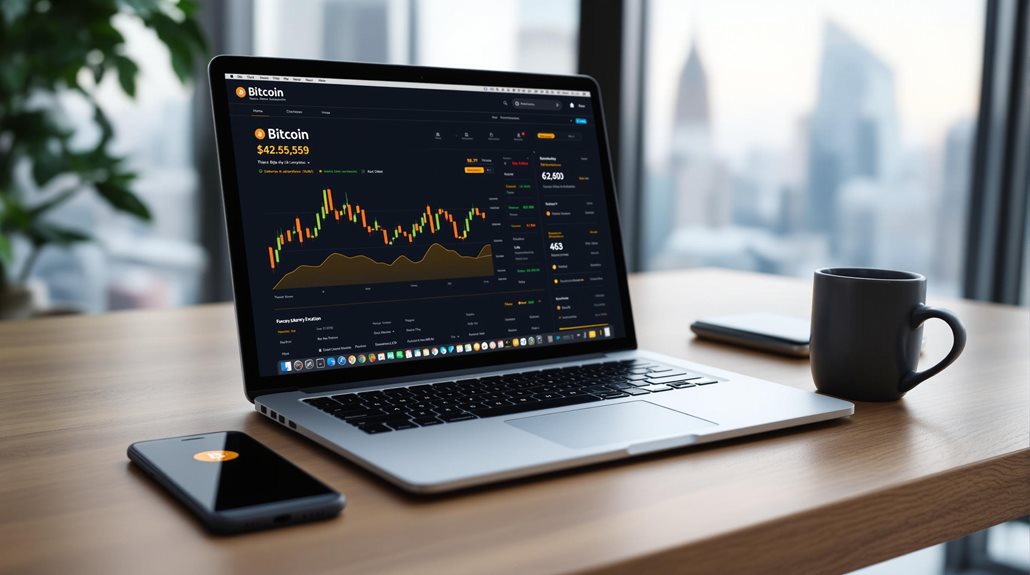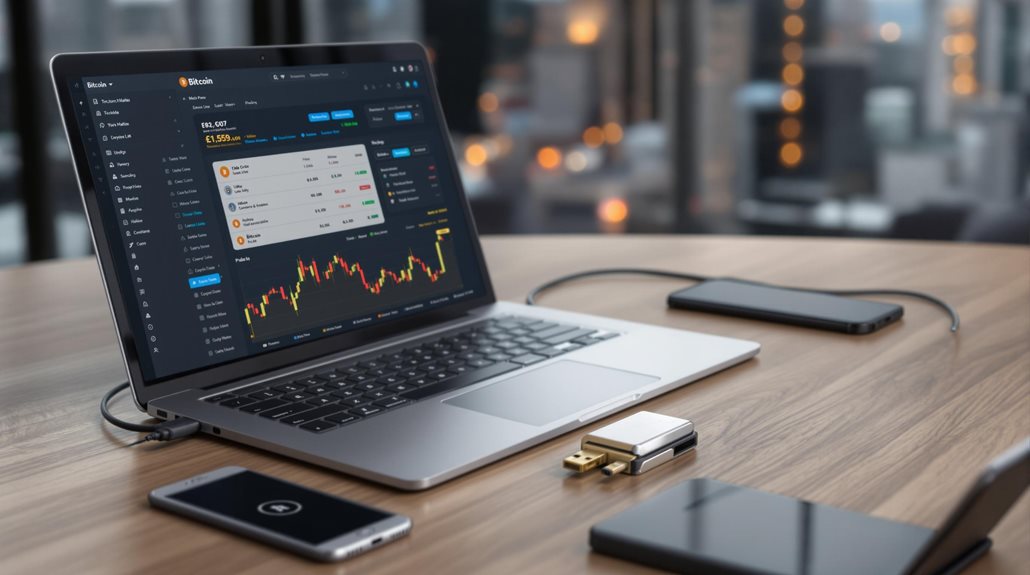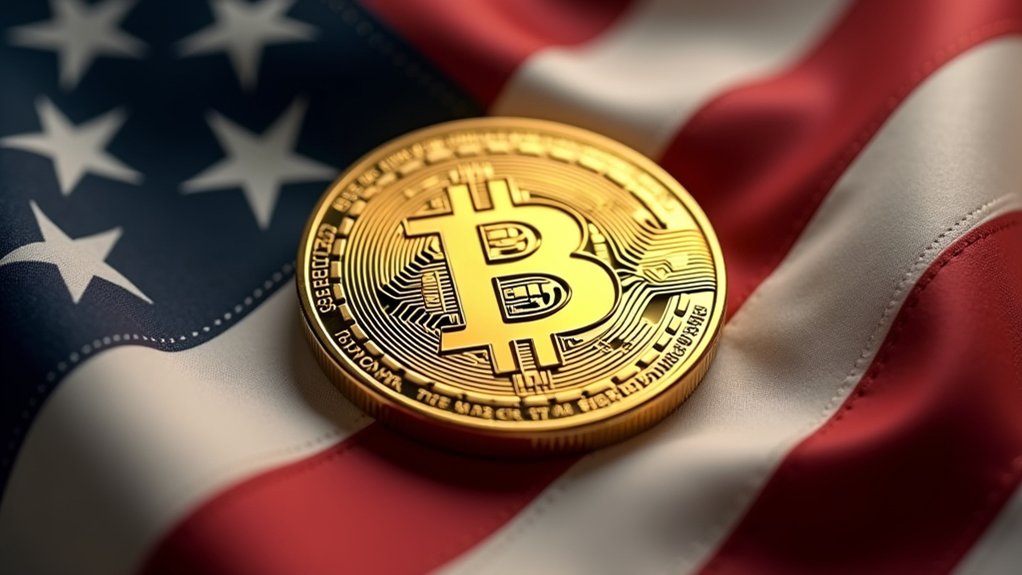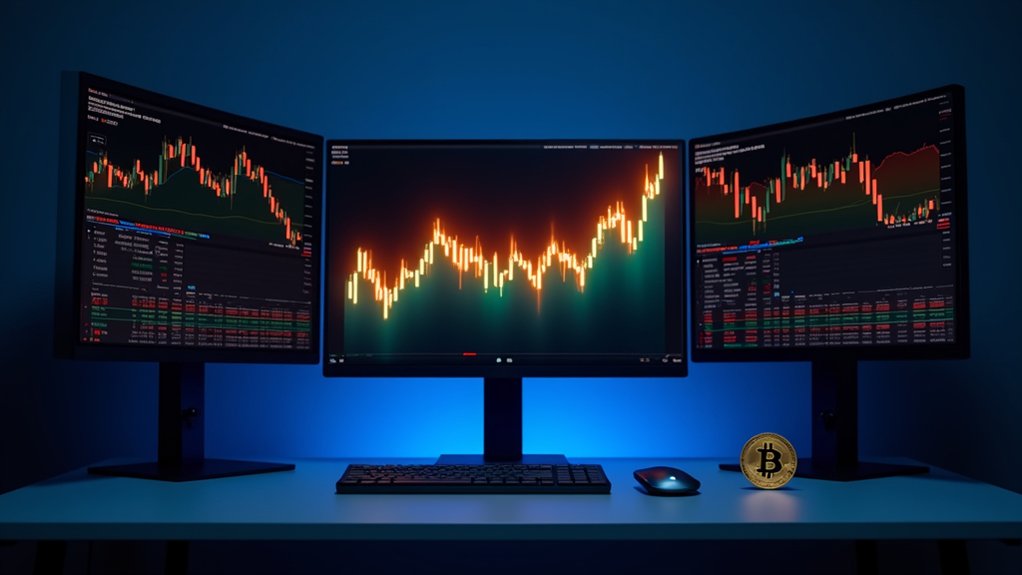To buy Bitcoin, people first choose a cryptocurrency exchange like Coinbase, Kraken, or Binance.US. They'll need to create an account, verify their identity with government ID, and link a payment method such as a bank account. After funding their account, they can place orders to buy Bitcoin at current market prices or set specific price targets. Most buyers then transfer their Bitcoin to a personal digital wallet for safekeeping. The process involves several security steps worth understanding.
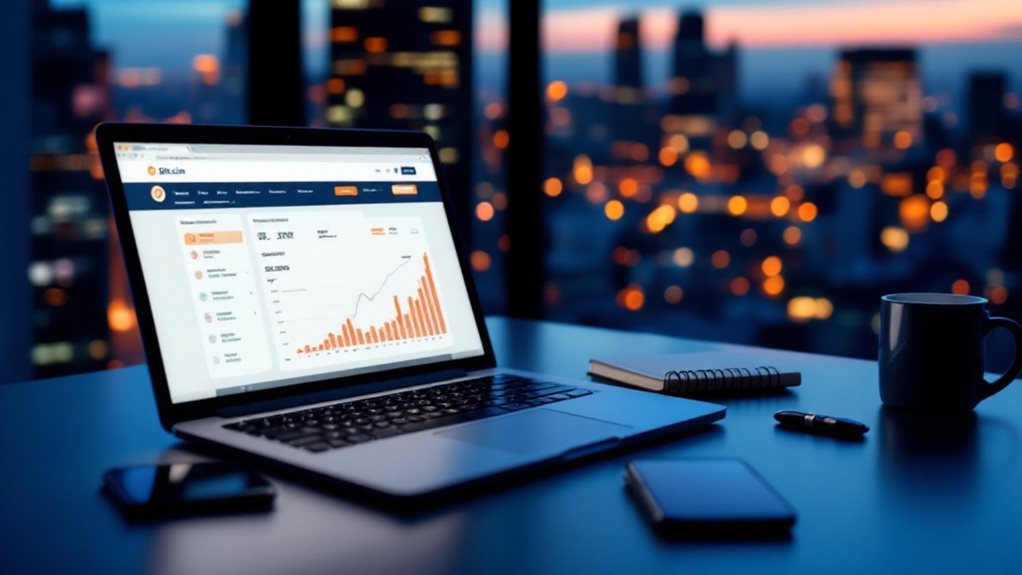
Wondering how to get started with Bitcoin? The first step involves selecting a Bitcoin exchange, which is an online platform where people can buy and sell cryptocurrencies. Popular exchanges include Coinbase, Kraken, Gemini, and Binance.US.
When choosing an exchange, people typically compare fees, security features, and user reviews. It's also important to verify that the exchange follows regulations and has proper licenses. Different exchanges support various payment methods, like bank transfers and credit cards. Unlike wallets, exchanges don't give users full private key control over their cryptocurrency assets.
Once someone chooses an exchange, they'll need to create and verify an account. This process starts with signing up using an email address and creating a strong password. The exchange will require identity verification, known as KYC (Know Your Customer). This usually involves uploading government-issued ID and proof of address.
Most exchanges offer two-factor authentication as an extra security measure. Users can then link their bank accounts or add other payment methods to their exchange account. eToro offers a zero commission trading feature that makes it particularly cost-effective for new buyers.
After setting up and funding their account, users can place their first Bitcoin order. They'll need to deposit traditional currency, like US dollars or euros, into their exchange account.
When buying Bitcoin, users can choose between a market order, which buys immediately at the current price, or a limit order, which buys when Bitcoin reaches a specific price. The exchange will show all transaction details before the purchase is confirmed.
Security becomes especially important after buying Bitcoin. While exchanges store cryptocurrency for their users, many people prefer transferring their Bitcoin to personal wallets for additional security.
These wallets come in different forms: hardware wallets (physical devices), software wallets (computer or phone applications), and paper wallets (printed codes). Each type offers various security features to protect the Bitcoin.
The most vital aspect of wallet security is the recovery phrase, which allows access to the Bitcoin if the wallet is lost or damaged. Users typically store copies of this phrase in multiple secure locations.
Like any technology, cryptocurrency wallets need regular software updates to maintain security. While exchanges make buying Bitcoin straightforward, understanding the basics of secure storage helps users protect their investment.
The cryptocurrency market operates 24/7, allowing people to buy Bitcoin whenever they want, but it's important to remember that prices can change rapidly.
Frequently Asked Questions
What Happens if I Lose My Bitcoin Wallet Password?
When someone loses their Bitcoin wallet password, they can't access their digital coins.
It's like being locked out of a vault with no spare key.
While there are password recovery services and software tools that might help, there's no guarantee of success.
Many Bitcoin owners have permanently lost access to their funds this way.
It's estimated that about 20% of all existing Bitcoin is locked away due to lost passwords.
Can Bitcoin Transactions Be Reversed or Refunded?
Bitcoin transactions can't be reversed or refunded once they're added to the blockchain.
It's like sending cash through the mail – once it's gone, it's gone. The system is designed this way to prevent fraud and keep the network secure.
While unconfirmed transactions might be replaceable using special protocols like Replace-by-Fee (RBF), confirmed transactions are permanent.
The only way to get funds back is if the recipient voluntarily agrees to return them.
How Do Taxes Work When Trading or Investing in Bitcoin?
The IRS treats Bitcoin like property when it comes to taxes.
When someone sells Bitcoin, trades it for other cryptocurrencies, or uses it to buy things, they'll need to pay taxes on any profits.
If they hold Bitcoin for less than a year, it's taxed like regular income.
If they keep it longer than a year, they'll pay long-term capital gains rates.
All Bitcoin transactions must be reported in U.S. dollars.
Is Bitcoin Mining Still Profitable for Individual Miners?
Bitcoin mining isn't typically profitable for individual miners today.
Large mining companies have taken over with massive operations and cheap electricity rates. A single miner would need significant upfront costs for specialized equipment and access to very low electricity rates to make money.
With current mining difficulty and the 2024 halving that reduced block rewards to 3.125 BTC, most individuals can't compete with industrial-scale operations that dominate the mining landscape.
What Happens to My Bitcoin if the Exchange Platform Shuts Down?
When an exchange platform shuts down, users' bitcoins can be at risk. They might lose access to their accounts and can't withdraw their funds right away.
If the exchange goes bankrupt, users become creditors and have to file claims to try to get their money back. The recovery process can drag on for months or years.
Sometimes users only get back a portion of their original funds, while in other cases, they might lose everything.
